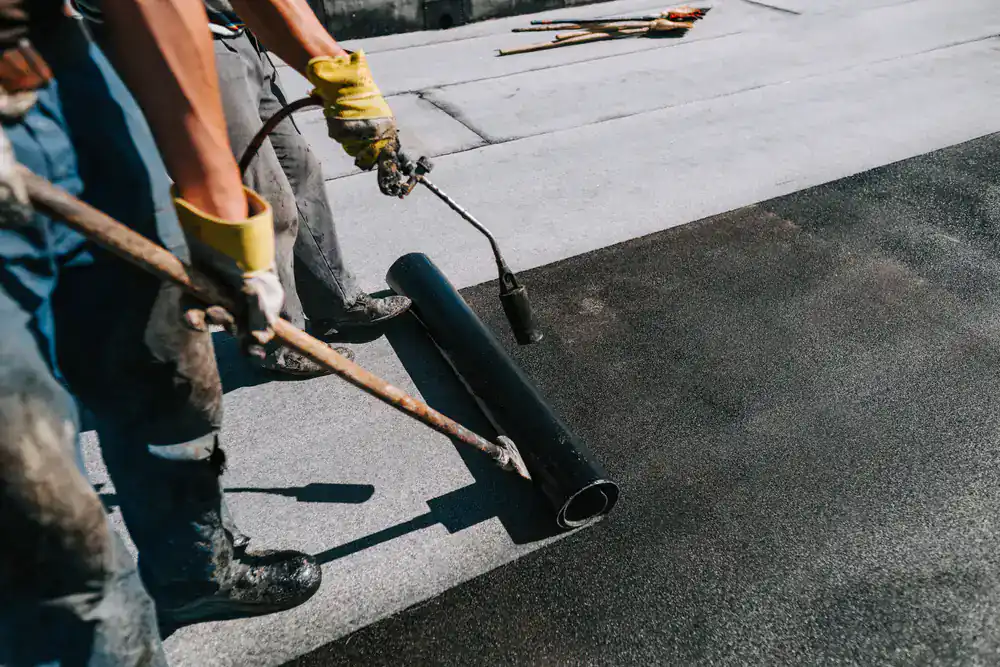
Hear from Our Customers
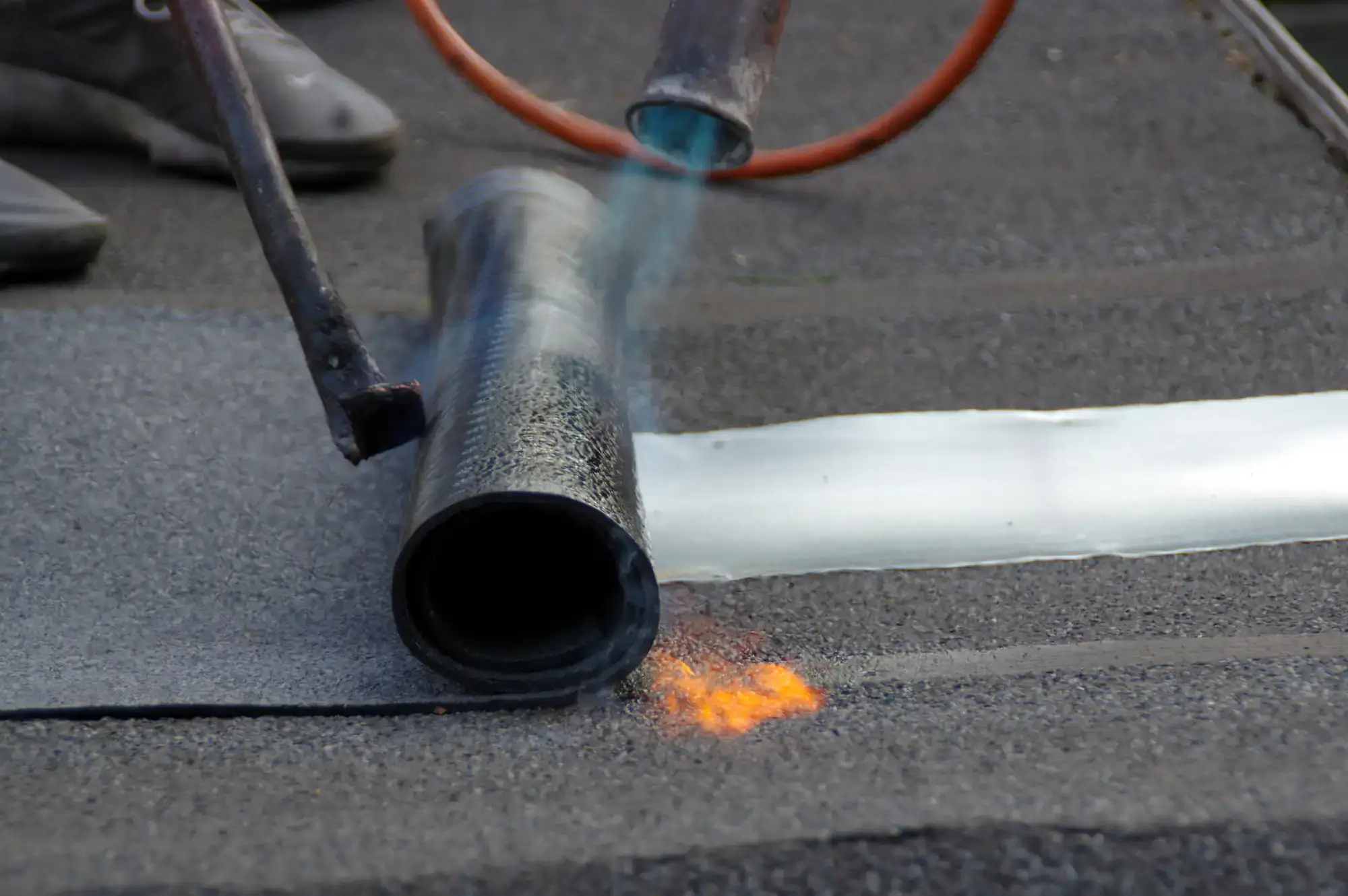
No more emergency calls during storms. No more buckets strategically placed around your building. No more holding your breath every time the forecast shows heavy rain.
You get a roof that actually works. Heat-welded seams create one continuous waterproof membrane across your entire flat roof. Water has nowhere to go but down the drains.
When your neighbors are calling roofers for the third time this year, you’re inside staying dry. That’s the difference between torch down done right and everything else.
Expressway Roofing and Chimney Inc specializes in flat roofing for Suffolk County properties. Twenty-plus years of torch down installations, repairs, and maintenance.
We’re not general contractors who do roofing on the side. Flat roofs are what we do every day, all year long.
Suffolk County weather teaches you things fast. We’ve learned what works and what fails. What materials hold up to coastal storms and which ones crack after the first winter. Our experience keeps your building dry when others start leaking.
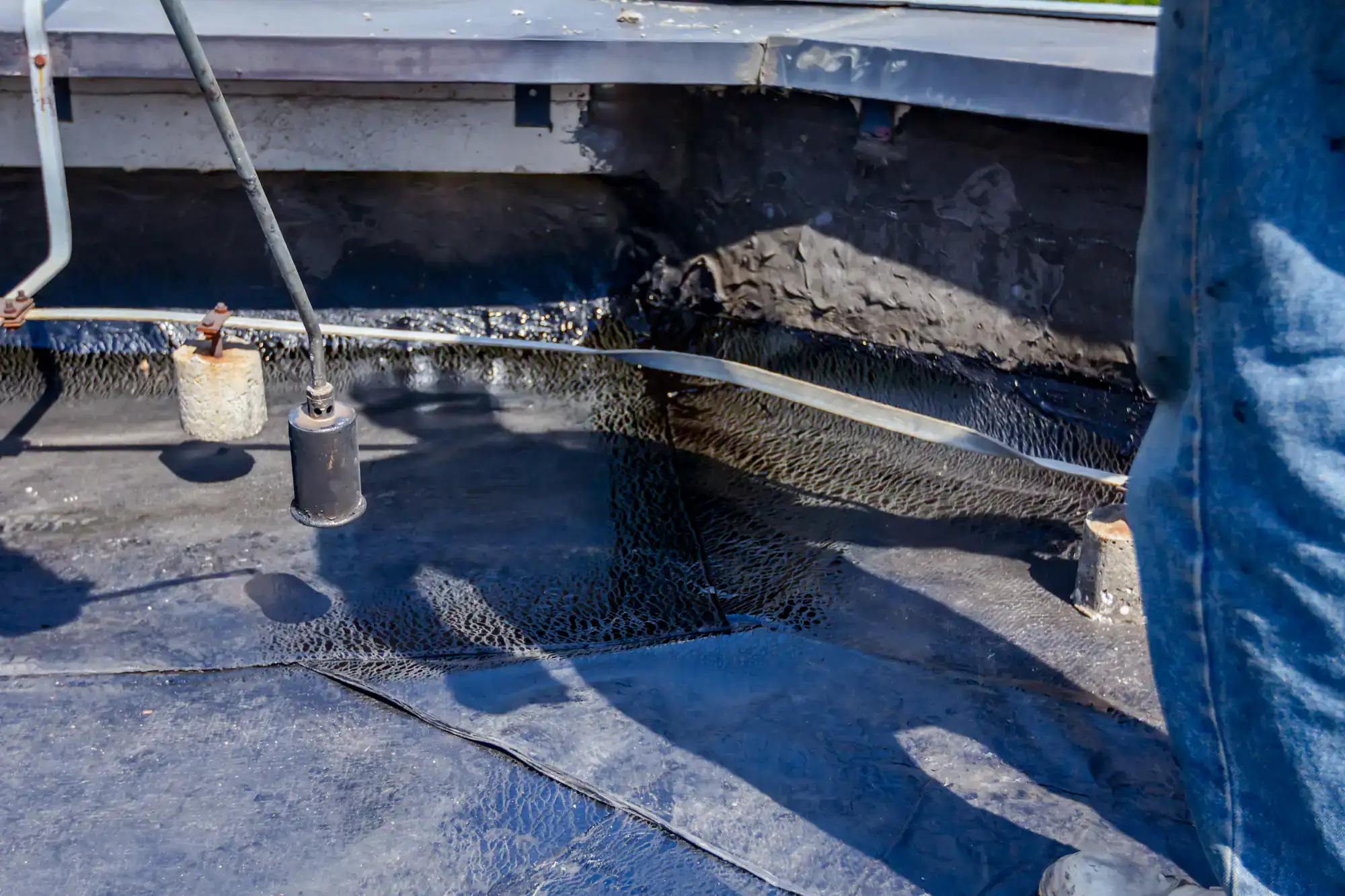
We start by examining your roof deck. Any soft spots, damaged insulation, or structural issues get fixed first. No point in putting a great roof over a bad foundation.
Next comes the base layer and proper insulation if needed. Then we roll out the modified bitumen membrane and begin the torch application process.
The propane torch heats the membrane to exactly the right temperature. Too hot and you damage the material. Too cold and the seams won’t bond properly. This is where experience matters most.
We create molecular welds between membrane layers, forming one continuous waterproof surface. Every seam gets checked. Every penetration gets properly flashed. Every detail gets done right the first time.
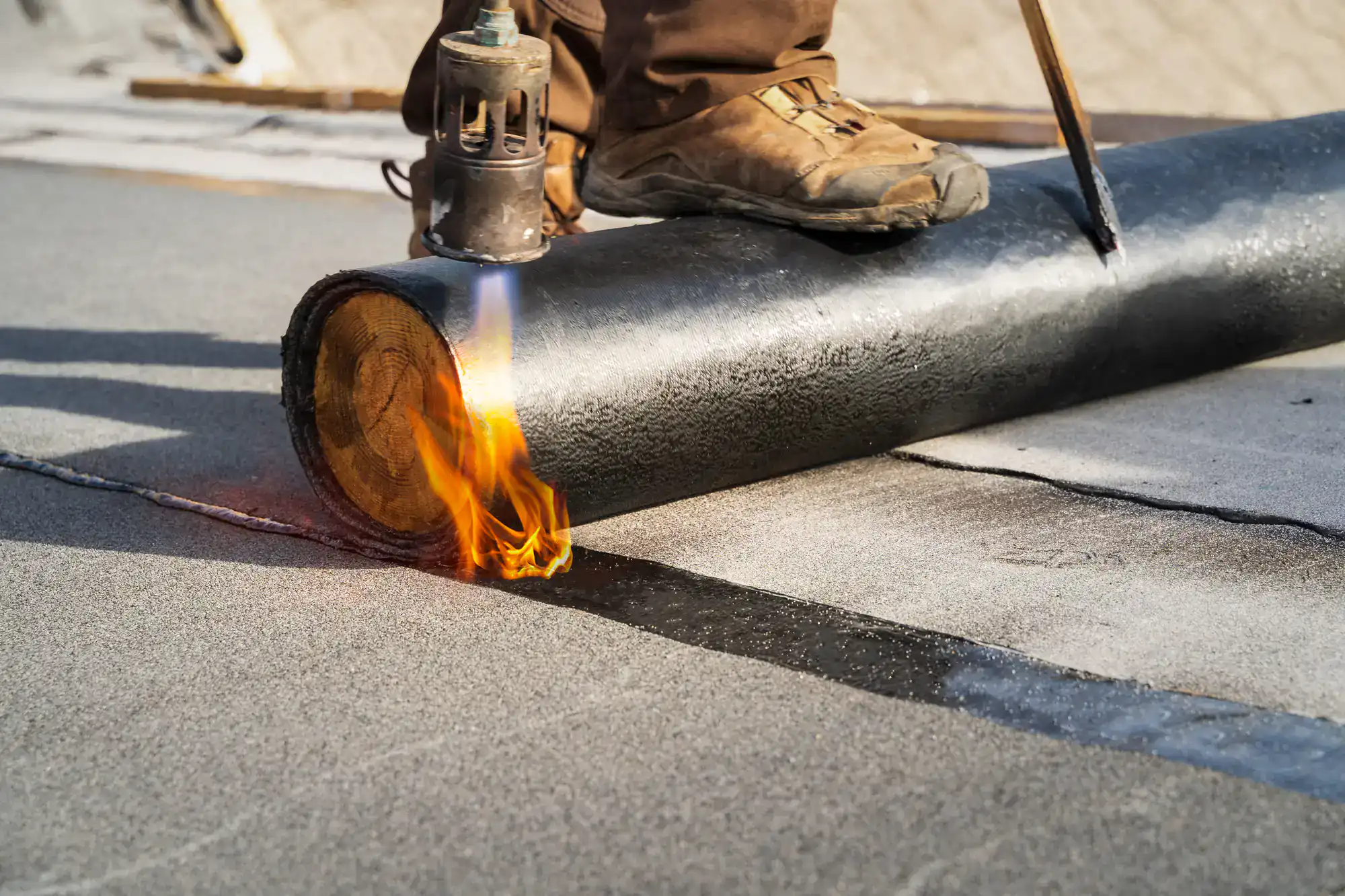
Ready to get started?
Suffolk County’s temperature swings demand flexible roofing materials. We typically install SBS modified bitumen because it stays elastic through freeze-thaw cycles.
APP systems work better in consistently warm climates. Here on Long Island, SBS handles our winter cold snaps without cracking or splitting.
The membrane includes UV-resistant granules that reflect Long Island’s intense summer heat. Multiple reinforced asphalt layers underneath create redundant waterproofing that doesn’t fail when one layer gets damaged.
For high-traffic areas or commercial applications, we install multi-ply systems with additional base sheets for extra durability and puncture resistance.
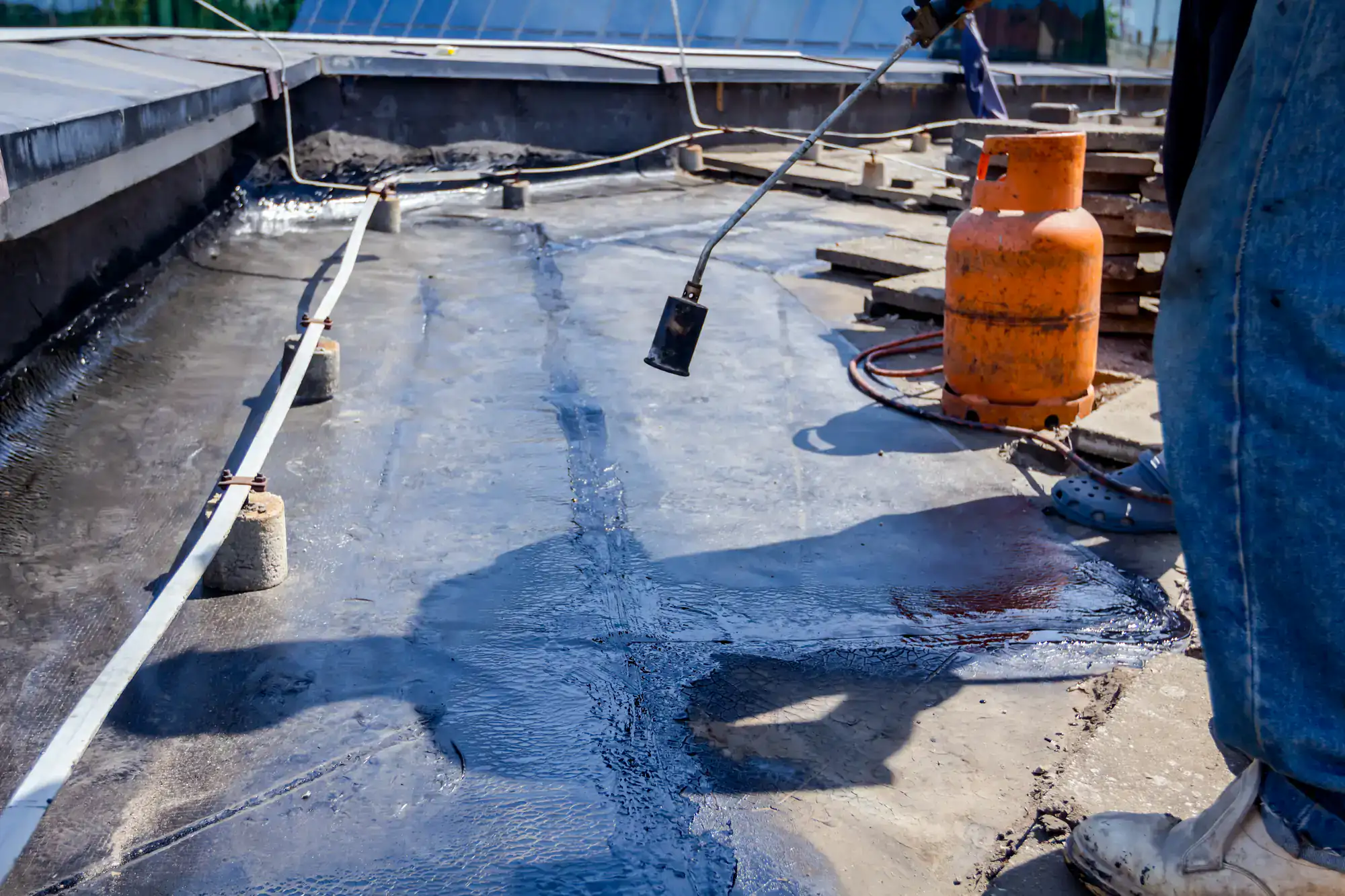
Properly installed torch down roofing lasts 20-25 years in Suffolk County conditions. Some installations we did in the early 2000s are still performing perfectly today.
The key is using SBS modified bitumen designed for temperature extremes. Cheap materials might save money upfront but fail within 10 years when exposed to our freeze-thaw cycles.
UV-resistant granules protect against summer heat while flexible asphalt layers accommodate thermal expansion and contraction. This combination handles Long Island weather better than single-ply alternatives.
Regular maintenance extends lifespan even further. Simple drain cleaning and annual inspections can push performance well past the 25-year mark.
Torch down provides superior waterproofing compared to EPDM, especially for Suffolk County’s challenging weather. The heat-welded seams eliminate the weak points that cause most flat roof failures.
EPDM relies on adhesive-bonded seams that can fail over time. Temperature extremes, UV exposure, and building movement stress these connections until they separate.
Torch down creates molecular bonds between membrane layers. There’s no adhesive to fail, no mechanical fasteners to work loose. The entire roof becomes one continuous waterproof barrier.
EPDM costs less initially but torch down delivers better long-term value through extended lifespan and fewer repair calls.
Often yes, depending on your current roof’s condition and local building codes. We need to inspect the existing membrane, insulation, and deck structure first.
If there’s only one layer and the deck is sound, torch down can go directly over existing roofing. This saves thousands in tear-off and disposal costs.
Multiple existing layers or significant water damage usually require complete removal. Suffolk County codes limit total roof thickness, so sometimes tear-off is mandatory.
We’ll give you honest recommendations during inspection. If overlay is possible, we’ll explain the process and savings. If tear-off is necessary, we’ll tell you why.
Torch down requires minimal maintenance compared to other flat roof systems. The heat-welded construction eliminates most common failure points.
Keep drains clear of debris. Clogged drainage causes problems with any flat roof, regardless of material. Check drains after storms and remove leaves or other blockages.
Schedule annual inspections to catch small issues before they become expensive problems. Look for surface damage, check flashing around vents or equipment, and ensure seams remain intact.
Most torch down roofs benefit from recoating every 10-15 years to maintain optimal UV protection. This costs far less than membrane replacement and extends roof life significantly.
Torch down installation costs more upfront than basic single-ply systems but provides better value through extended lifespan and reduced maintenance.
Pricing depends on roof size, complexity, access, and whether tear-off is required. Simple overlay installations cost significantly less than complete replacements.
We provide detailed written estimates breaking down materials, labor, permits, and cleanup costs. No hidden fees or surprise charges after work begins.
The investment pays off through decades of leak-free performance. When you factor in avoided repair costs and extended lifespan, torch down often costs less per year than cheaper alternatives.
Torch down installation requires specialized equipment, safety training, and experience most property owners don’t have. The torch application process is particularly critical and potentially dangerous.
Improper heat application creates weak seams, gaps, and fire hazards. Insurance companies often exclude coverage for DIY torch work, leaving you liable for any damage or injuries.
We understand Suffolk County building codes, permit requirements, and OSHA safety standards. We carry insurance and provide warranties that protect your investment.
The cost difference between professional installation and DIY disaster is minimal compared to the risk of getting it wrong. One mistake can cost more than hiring us from the start.
Other Services we provide in Suffolk County